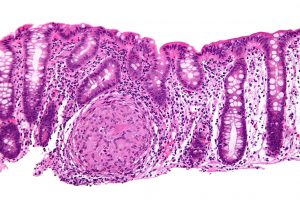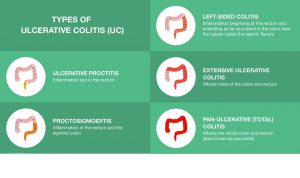
Crohn’s disease and ulcerative colitis, or UC, are inflammatory bowel diseases that share many similarities. However, the two conditions are different in various ways as well.
Crohn’s and UC affect the intestines and can cause chronic inflammation of the digestive tract. This may result in various symptoms, such as diarrhea, fever, fatigue, abdominal pain and cramping, weight loss, and blood in the stool. In addition, UCLA Health says that each disease can develop in people of any age, including teenagers and young adults. The causes of each condition, which affect men and women equally, are largely unknown. However, factors such as the environment, genetics, and inappropriate immune system responses are often implicated in the onset. Despite their similarities, Crohn’s and UC are different.

MedicineNet offers that Crohn’s disease can affect any part of the gastroesophageal tract from the mouth to the anus. UC, on the other hand, is only confined to the large bowel. While people with Crohn’s disease will have episodes of pain and diarrhea, among other symptoms, remission can occur for stretches. Those with UC often experience pain in the lower left side with rectal bleeding, frequent stools, and a mucous-like discharge. Such symptoms are typically ongoing. There is no cure for Crohn’s disease or UC, though the Mayo Clinic notes therapy can greatly reduce signs and symptoms and even bring about long-term remission. Treatments may include medications and special diets. Surgery can often eliminate UC, but it typically involves removing the entire colon and rectum.

Surgery also may be an option for those with Crohn’s disease, advises the Crohn’s and Colitis Foundation. As many as 75 percent of people with Crohn’s find that medications can no longer control their symptoms. Surgery involves removal of the diseased segments of the bowel.
Patients should keep in mind that recurrence of Crohn’s is possible, even after surgery. People with either Crohn’s disease or ulcerative colitis may be advised to undergo frequent testing, which can include both a colonoscopy or sigmoidoscopy to periodically check up on the health of the GI tract. People with Crohn’s or UC may be at an elevated risk for gastrointestinal cancers. It is important for people with Crohn’s or UC to speak with a doctor so they can stay up-to-date on the latest testing and treatments.